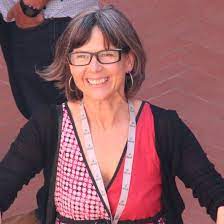“Women’s land rights should be at the core of everything we do, to enhance our climate action” – Beth Roberts, Director of Centre for Women’s Land Rights
This was a common theme that ran through the side event “Securing Women’s and Girls’ Land Tenure to promote Communities Resilience to Climate Change and to advance on sustainable Economic Justice & Rights,” hosted as part of the 66th session of the Commission on the Status of Women (CSW-66) in March, with support of the governments of Switzerland, the Netherlands and the European Union.
Moderated by Janet Macharia, gender lead at the U.N. Environment Programme, the event brought together a host of donor partners, intergovernmental organizations, civil society groups, Indigenous leaders, U.N. Framework Convention on Climate Change (UNFCCC) representatives, as well as global initiatives working on gender transformation, to discuss the importance of women’s and girls’ access to land and land rights.
In welcoming remarks, Mike Taylor, Director of International Land Coalition (ILC), stressed that the key to overcoming the global challenges confronting us today – including the climate crisis – is through securing women and girl land rights.
Women are disproportionately impacted by climate change, but when they have weak land tenure, they are more severely affected by climate shocks in rural and urban areas. Land rights for women specifically create a foundation for women — and by extension their families and communities — to adapt to and to be resilient to climate impacts.
This foundation underpins food security, economic resilience and women’s ability to connect to government services, including agricultural support. Land rights create provide a secure location for return of displaced people. They support governments navigating the issues of climate displacement more smoothly, and provide people impacted by displacement the opportunity for greater economic stability. Particularly for women, land rights in the context of climate change mitigate the impacts of climate change, including gender-based violence, increased food insecurity and the displacement of people, that are gender specific.
The governments of the Netherlands, Switzerland and the European Commission, were represented by speakers. Participant speakers also included the gender and land expert from Intergovernmental Authority on Development (IGAD) land governance, the director of the Center for Women’s Land Rights, the grassroots woman leader from the Quechua People of Peru’s Ayacucho region, the UNFCCC director of intergovernmental support and collective progress, and a gender researcher representing a consortium of CGIAR centers working with support from the International Fund for Agricultural Development (IFAD) on a project on Women’s Resource Rights.

“What matters is not just land. It is the quality of the land, it’s territory and the connections among land, forests and water. It is women as leaders and decision-makers and the eradication of the threats and violence against women.” – Melania Canales Poma, Grassroots Woman Leader Quechua People of the Ayacucho region.
This event was critical in not only unpacking the various barriers to securing land and land rights for women and children, but also in highlighting the crucial link between women’s land rights, strengthening climate action and enhancing resilience to climate shocks. It served as a reminder to maintain the momentum from the 2021 U.N. Food Systems Summit which underlined equitable access to land and land rights as essential foundational blocks for building sustainable, inclusive, and resilient food systems.
Significantly, it served as a platform for leaders of various Indigenous women grassroot organizations from Senegal to Peru, to share learnings from projects and activities underway at the local level to secure equitable land rights – the real action on the ground. The various representatives noted that we cannot think of transformation without recognizing women as stewards of forests and natural resources, food producers within families and key holders of ecological knowledge. Strengthening women’s land rights specifically, enables better protection of our ecosystems, as well as greater gender equality within communities and the attainment of international goals including the Sustainable Development Goals and the Paris Agreement.
“It is ever clearer that without enhanced land rights for women we will not be able to address the climate crisis and to achieve economic justice.” – René van Hell, Representative from the Netherlands Government
In addition to the practical and scalable initiatives shared at this CSW-66 side event, a key outcome was the commitment shown by the governments, intergovernmental organizations and civil society organizations to work together across borders, sectors and departments through multi-stakeholder platforms to achieve greater equity in land tenure.
Examples include IGAD’s National Women’s Land Rights Agenda and their Regional Women Land Rights Agenda which serves as a framework for women land rights programming in the region. The Stand For Her Land Campaign, which has the overarching goal of working towards the achievability of women’s land rights, as well as the Netherland’s Land at Scale Programme, which is making an explicit effort to upscale initiatives that focus on women’s rights and access of women to land.
Furthermore, a presentation by gender specialist Ana Maria Paez, on behalf of the IFAD supported Global Initiative to Securing Women´s Resource Rights promoted the adoption of gender transformative approaches in rural development interventions to strengthen women’s land rights.
The Initiative team works collaboratively with IFAD projects, across seven core countries, and a network over 20 learning countries. Each context is unique, entailing different phases and timelines of project implementation, approaches to addressing gender, and issues concerning rights to land and resources. The side event profiled the work underway in the IFAD Char Development and Settlement Project IV in Bangladesh in securing women legal tenure to land.
“In development practice and policies, interventions that have supported gender equality and land rights have not engaged effectively with the roots of inequality. By integrating gender transformative approaches we are aiming to do exactly that, challenging unequal gender relations and discriminatory norms and practices, which are typically biased in favor of men” – Ana Maria Paez, Gender Specialist, Alliance of Bioversity International and CIAT, Securing women’s resource rights through gender transformative approaches initiative
Gender transformative approaches challenge the underlying barriers that sustain gender inequality, such as norms and institutional structures. Rather than addressing the symptoms (e.g. unequal income), these approaches identify factors that enable and catalyze changes to achieve more equitable involvement of women and girls in decision making, control over resources, and agency of their own labor and future.
The event concluded with an intervention by Cecilia Kinuthia-Njenga, representative of UNFCCC in Intergovernmental Support and Collective Progress in U.N. Climate Change. Kinuthia-Njenga reinforced that women’s land rights are foundational to climate action, highlighting that mitigation is dependent on protecting forests, restoring soil, and protecting rangelands and the full range of ecosystems upon which 2.5 billion people across the world are directly dependent. These include Indigenous communities.
Strengthening women’s land rights specifically enables better protection of these ecosystems and it enables gender equality within the communities. Like all the speakers, she emphasized that this is only possible through collective learning and collaboration with all stakeholders involved.
“We cannot address climate change as a standalone. We cannot address issues of gender equity as a standalone. We must do it in an integrated manner. I think this is the beauty of what intergovernmental processes offer us. Working together enables us to move towards not only implementing the sustainable development goals, but also ensuring that gender equality, diplomacy, peace and justice are fundamental elements within our pathways to our sustainable development.” – Cecilia Kinuthia-Njenga, Director, Intergovernmental Support and Collective Progress in UN Climate Change
We want you to share Forests News content, which is licensed under Creative Commons Attribution-NonCommercial-ShareAlike 4.0 International (CC BY-NC-SA 4.0). This means you are free to redistribute our material for non-commercial purposes. All we ask is that you give Forests News appropriate credit and link to the original Forests News content, indicate if changes were made, and distribute your contributions under the same Creative Commons license. You must notify Forests News if you repost, reprint or reuse our materials by contacting forestsnews@cifor-icraf.org.















